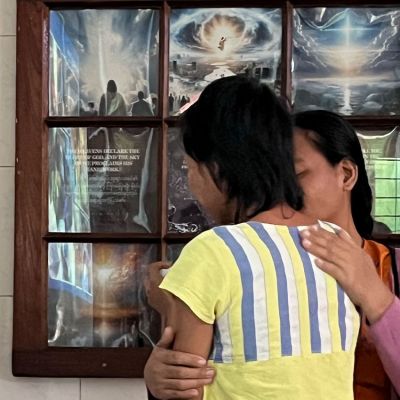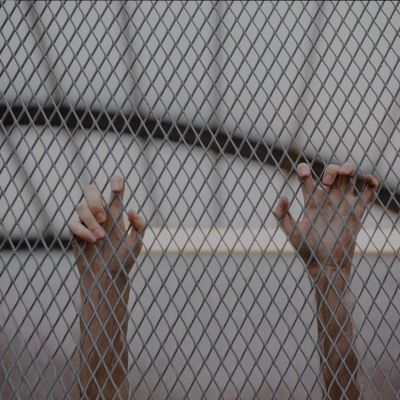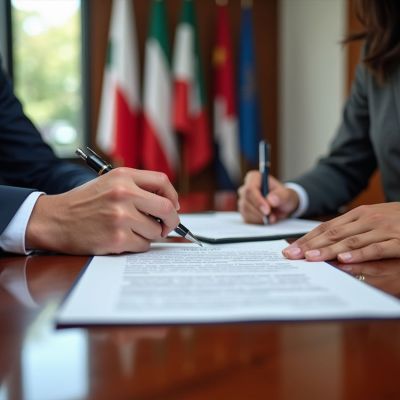Written by Ken Wong (Communications Officer)
The problem of transnational human trafficking has become increasingly severe and is a global issue that cannot be ignored. To promote co-operation among countries and effectively curb the crime, the international community has gradually developed a series of legal frameworks and operational guidelines aimed at preventing human trafficking, punishing offenders and protecting high-risk trafficked communities. Below is a brief introduction to key international agreements and their roles.
Forced Labour Convention – International Labour Organization
In 1930, the International Labour Organization (ILO) established the Forced Labour Convention, which requires countries to prohibit and criminalise forced labour. In 1998, the ILO supplemented the Convention by advocating that countries develop policies to prevent labour exploitation and conduct inspections and controls. The ILO’s efforts play an essential role in the international fight against labour exploitation, as the Convention calls for establishing effective mechanisms to help victims escape their plight and avoid re-victimisation.
Trafficking in Persons Protocol – United Nations
In 2000, in response to the increasingly serious problem of human trafficking, the United Nations annexed the Trafficking in Persons Protocol to the Convention against Transnational Organised Crime (Palermo Protocol), requiring signatories to enact laws to criminalise and penalise human trafficking, and emphasising protection measures for victims, including the provision of shelter, legal assistance and psychological counselling, to provide a framework for countries to combat human trafficking.
Trafficking Victims Protection Act – United States
Since 2000, the United States has passed several bills to combat human trafficking, with the Trafficking Victims Protection Act (TVPA) being the most influential. The TVPA not only strengthens criminal prosecution of traffickers but also establishes a fund to provide victims with safe houses, rehabilitation and resettlement. In addition, the TVPA requires the U.S. government to regularly evaluate the efforts of countries around the world in combating human trafficking and to rate their performance accordingly, to encourage countries to improve their countermeasures. This monitoring mechanism has effectively promoted international co-operation.
Directive 2011/36/EU – EU
In 2011, the EU adopted the Directive 2011/36/EU which requires member states to adopt consistent legal measures to combat trafficking in human and protect victims. The Directive regulates anti-trafficking measures from prevention to punishment, providing victims with shelter, compensation and reintegration assistance. It also requires member states to report regularly on implementing their policies to ensure they are effective. The EU’s actions set an example of regional co-operation.
Through years of efforts by different countries and organisations, the global anti-trafficking legal framework has strengthened the protection of victims, and the increasing international co-operation has helped to combat transnational trafficking crimes. However, the challenges remain daunting with the ever-changing modus operandi of the crime. According to the 2024 Trafficking in Persons Report of the U.S. Department of State, trafficking syndicates are taking advantage of international border loopholes and digital technology to expand their operations, using social media, dating apps, and gaming platforms to lure and control the poor with fake high-paying jobs. They also use cryptocurrency transactions and steganography to cover their tracks, making it much more difficult to enforce the law. The report says, ‘Building consensus around an affirmative vision is the first line of our tech diplomacy.’ In the face of increasingly rampant transnational human trafficking, international co-operation in information sharing, joint investigations and cross-border law enforcement is increasingly essential. May all governments, organisations and citizens be guided by the Lord to help victims regain their dignity and freedom, and to curb the spread of human trafficking.
ARTICLES OF THIS ISSUE
Written by Clara Chiu (Head of Partnership Development) In February this year, my colleague and I went on a field trip…
Written by Dr. Alex Ip (Director, CEDAR Fund) Scriptures reading: Philemon 10-12 10 That I appeal to you for my son On…
Written by Dustin Tang (Donor Services Officer) Nepal is one of the countries where human trafficking is rampant. Traf…
Written by Ken Wong (Communications Officer) The problem of transnational human trafficking has become increasingly se…






